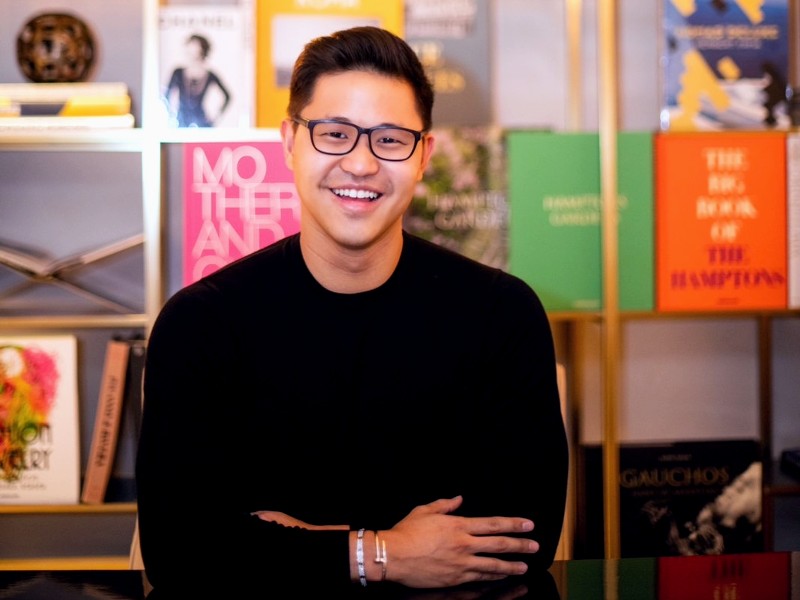Maya’s ambition was to study at an Ivy League school and eventually become a doctor, but she was also passionate about philosophy. In her college application to top US colleges, besides including her clinical internships and hospital volunteering work, she also highlighted a podcast she was doing with a friend about niche philosophy topics.
Although it had nothing to do with her ambition, this was exactly what would differentiate her from other applicants to top US colleges. Maya demonstrated her passion and what she had to do to produce her podcast. While this wouldn’t be the main thing college admissions boards would consider when making their decision, it would certainly help; and these days, applicants need all the help they can get.
Maya’s experience was one of several success stories related to us by CHRISTOPHER RIM, Founder and CEO of Command Education. His company specialises in college admissions consulting by helping students navigate the tricky path.
What the top US colleges looking for
According to Christopher, 30 years ago, being an all-rounder with straight A’s might have been enough for an Ivy League school. These days, with rejection rates of up to 95%, candidates must work harder to stand out from the pack.
Top US colleges are now looking at applicants for the role they might play on their campus. The schools are trying to ensure that students occupy specific but diverse niches, with the goal of developing a well-rounded and dynamic student body.
Although they’re still trying to find academically excellent students, they’re also looking for candidates who have interests that stand out – or what Christopher calls a “hook.”
Typically, a hook refers to specialised narratives or achievements built up by a student over the course of his or her high school career. At the highest levels, examples would include representing their country at an International Science Olympiad, publishing a book, or landing a role in a major production.
Hooks can also be more modest and represent a well-developed record of distinctive achievements, activities or service, all of which would enhance a college application.
Is it possible to highlight too many accomplishments?
College admissions officers are experienced enough to identify students who engage in extracurricular pursuits for the sole purpose of gaining admission to a top US school.
What’s needed, says Christopher, is a compelling case around an outstanding passion, even if it’s only a single one. It takes skill and attention to create a package that elite schools both understand and find attractive. If students know how to present truly differentiated cases for candidacy, then the entire college application process becomes a lot more manageable.
How having a mentor can help with college applications
A personal mentor who can help candidates focus on their strengths. The objective, says Christopher, is to help students identify and develop their passions, while maintaining an excellent academic track record.
Mentors and students meet regularly to discuss big picture hopes and dreams, and work together to actualise them. They might talk about what to do over the summer holidays, draw up plans for long-term standardised test schedules and identify potential colleges to visit. They can also discuss day-to-day matters: study habits and grades; the importance of time management and stress management; and how to get a healthy balance of work and fun.
Command Education also provides students with a full-service in-house marketing team to help build a website, develop branding and social media strategy, and recruit press for students’ accomplishments in order to better showcase outstanding achievements on their college application.
To date, nine out of 10 of Command Education students have been successfully accepted to one or more of their top three schools of choice.
What makes a good mentor
Christopher believes that mentors should take an emotionally intelligent approach to college consulting. This idea stems from his psychology degree at Yale University and work as a research assistant at the Yale Center for Emotional Intelligence. There, he helped conduct a survey of 44,000 high school students, where the results surprised him. When students were asked to describe how they felt at school, three-quarters of the words they used were negative (e.g. “tired”, “stressed” and “bored”). However, students actually wanted to feel successful in their endeavours, citing words like “inspired”, “empowered” and “purposeful”.
A good mentor should help students get excited about their futures by helping them identify their passions and acting on them. It also helps if mentors are seen as peers and collaborators, instead of extensions of their parents and teachers. As a result, Christopher selects mentors who are all recent graduates, mainly of Ivy League schools and top 10 US schools.
This philosophy lies at the core of Command Education’s mentoring; the result is that 96% of their students say they can personally relate to their mentors. More importantly, every single one of their students agree that their mentors have helped them pursue their passions.
When to start with a college admissions mentor
The most successful students are those who start their work with mentors as early as eighth or ninth grade (around 13-14 years old). The earlier students identify their passions and explore them through classwork and extracurricular activities, the better chance they have to excel over time and make a real impact in their schools and communities.
Christopher says that many students do only come to Command Education later in their high school careers; this just means mentors and students must accomplish more in a shorter period of time. When it comes time for the college application process, mentors work with students to help them focus their narrative on their applications by emphasising their personal development, intellectual curiosities and extracurricular achievements.
To take Maya as an example: she began working with Command Education at about age 15 years, in her sophomore year. Her mentor helped as a guide but Maya’s interest in producing the podcast was all hers – and it was this passion that made it her college application. She eventually matriculated at her first choice, Brown University, with a 4.0 GPA and 1560 SAT score. But it’s safe to say that her passion in philosophy will last a lifetime.
What if a student is wait-listed?
Students that have been deferred or waitlisted can write a Letter of Continued Interest. If written correctly, it can be a professional way to remind the school that you still exist, you take initiative and above all, you’re someone they’ll want to accept in the next round of admissions.
What if a student is rejected?
They have a few options, according to Christopher.
#1 Assuming they’ve put the time and effort into creating a balanced college list, they can matriculate at the next best school they were accepted to. It may not be the “dream school”, but there are plenty of good fit colleges.
#2 Reapply as a transfer once they’ve completed a year or two at another college.
#3 Take a gap year and reapply again next application cycle. Students who elect to take a gap year in between high school and college tend to take part in meaningful work or travel opportunities. The gap year classroom can take a variety of shapes and sizes, and prove to Ivy League colleges that a student has focused on personal development since the last time they applied.
Find out more
Start discovering your passions and interests with the help of the team at Command Education. They will work closely with you to craft your hook that will appeal to the Ivy League schools and top US colleges of your choice.
Planning activities for this weekend? Here’s our guides to fun things to do in Singapore and best restaurants in Singapore.








